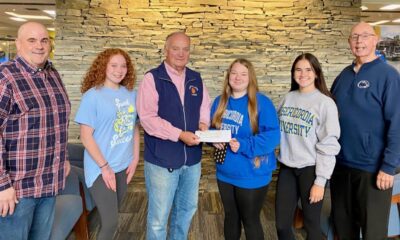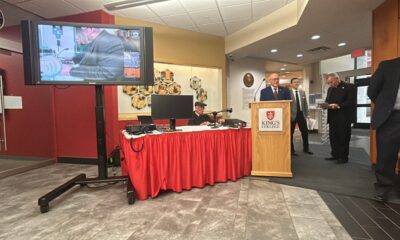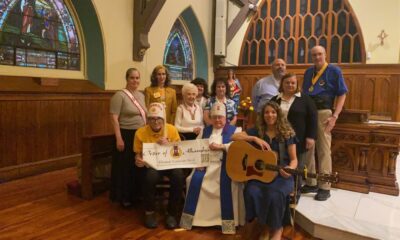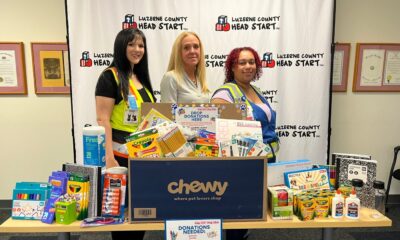Health
Free Heart Screening Clinic Saves Lives at King’s College
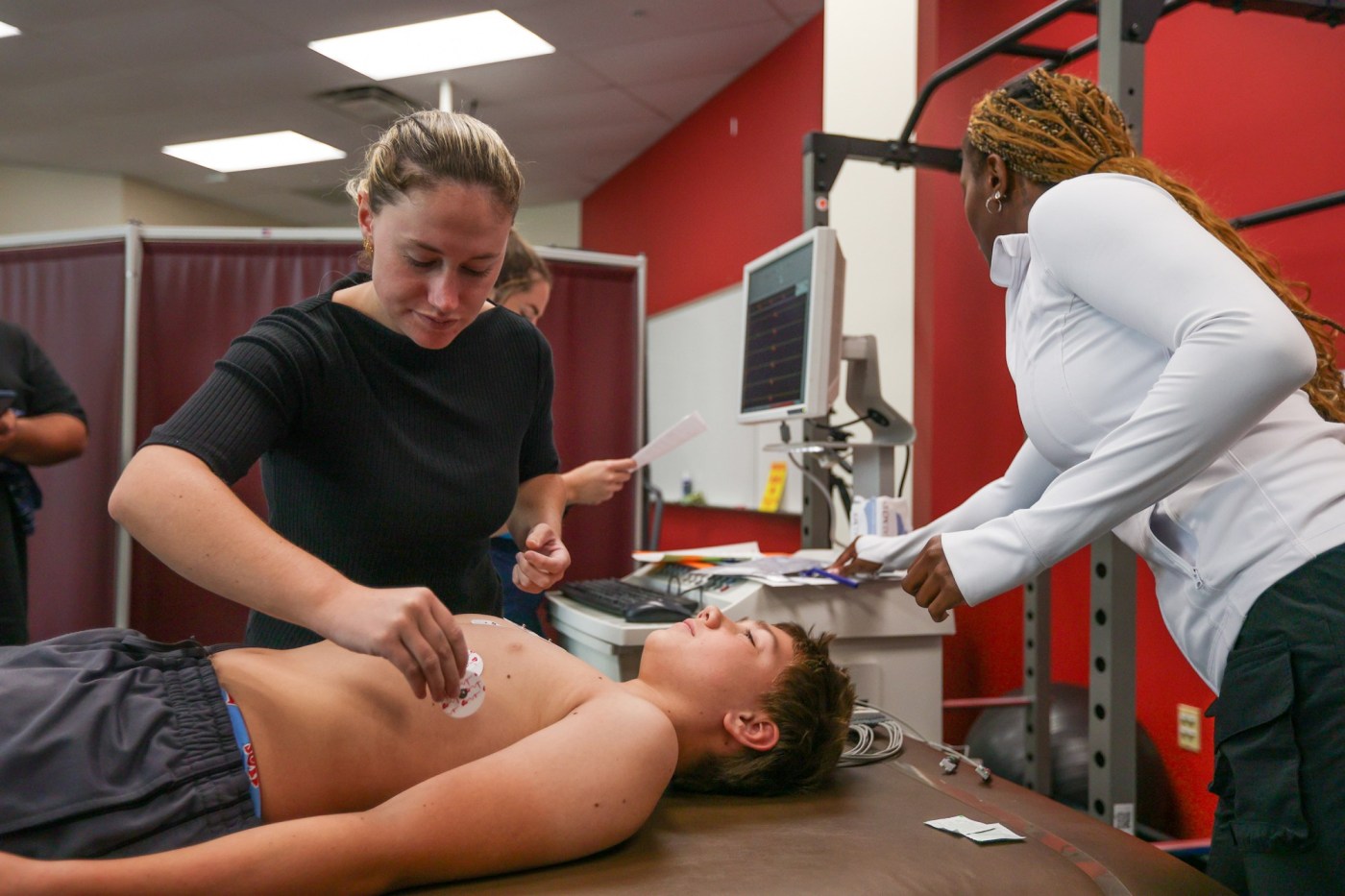
A free heart screening clinic held on October 4, 2025, at King’s College in Wilkes-Barre attracted significant attendance, offering essential health checks for children and young adults aged 10 to 22. The event, organized in collaboration with the Peyton Walker Foundation and Geisinger Health System, aimed to identify potential heart abnormalities in young individuals, with statistics indicating that 2% of youth screened nationally are diagnosed with some form of heart condition.
Julie Walker, the mother of Peyton Walker, who tragically passed away in November 2013 from sudden cardiac arrest, emphasized the importance of such screenings. “Nationally, the statistics are 2%, but I’d say we have probably 3% to 5% findings on average,” she stated. Walker noted that King’s College has consistently identified more heart issues than the national average over the past decade, leading to necessary follow-up care, including surgeries and implantable defibrillators.
The screening clinic, hosted at the Richard Abbas Alley Center for Health Sciences, provided registered attendees with free electrocardiograms (EKGs) and echocardiograms if recommended by onsite cardiologists. Approximately 120 participants, including a group of student athletes from Pittston Area High School, registered for this potentially lifesaving event.
In addition to heart screenings, participants engaged in educational stations that covered crucial topics such as CPR techniques and the use of automated external defibrillators (AEDs). Nursing students from King’s College played an active role in delivering this training. Sister Elizabeth Kovacs, a faculty member in the nursing program, highlighted the importance of effective delegation during emergency situations. “We’re training them on how to delegate. Like, you call 911, you get the AED, and ensuring clear communication is crucial,” she explained.
Among the attendees was Anderson Lahr, a 12-year-old from Moscow, who practiced CPR techniques on a manikin. He shared his experience, noting, “The most interesting thing I learned was how to operate an AED.” His mother, Stacey Lahr, attended the clinic with her sons and expressed her concerns about undiagnosed heart conditions in young athletes. “You hear about kids having trouble in sports, having heart conditions that are undiagnosed, and I thought it would be a good idea to get them checked,” she said.
Since its inception in 2014, the Peyton Walker Foundation has made significant strides in promoting heart health awareness. The foundation has screened over 6,000 youths and donated more than 1,500 AEDs. Additionally, they have provided CPR training to tens of thousands of people. Walker’s motivation for this initiative stems from a desire to prevent other families from experiencing similar heartache. “My motivation to get up every day is to save another family from the heartache that we live with. I know we’ve been successful in that mission,” she said.
The heart screening clinic not only served as a vital health resource but also as a community effort to educate young people and their families about the signs and symptoms of heart conditions. As Walker noted, increasing awareness and facilitating early detection are essential steps in saving lives. The success of the event underscores the ongoing need for such initiatives in communities worldwide.
-

 Technology5 months ago
Technology5 months agoDiscover the Top 10 Calorie Counting Apps of 2025
-

 Technology2 weeks ago
Technology2 weeks agoOpenAI to Implement Age Verification for ChatGPT by December 2025
-

 Health3 months ago
Health3 months agoBella Hadid Shares Health Update After Treatment for Lyme Disease
-

 Health3 months ago
Health3 months agoAnalysts Project Stronger Growth for Apple’s iPhone 17 Lineup
-

 Health3 months ago
Health3 months agoErin Bates Shares Recovery Update Following Sepsis Complications
-

 Technology5 months ago
Technology5 months agoDiscover How to Reverse Image Search Using ChatGPT Effortlessly
-

 Technology3 months ago
Technology3 months agoElectric Moto Influencer Surronster Arrested in Tijuana
-

 Technology2 months ago
Technology2 months agoDiscover 2025’s Top GPUs for Exceptional 4K Gaming Performance
-

 Technology5 months ago
Technology5 months agoMeta Initiates $60B AI Data Center Expansion, Starting in Ohio
-

 Technology5 months ago
Technology5 months agoRecovering a Suspended TikTok Account: A Step-by-Step Guide
-

 Health5 months ago
Health5 months agoTested: Rab Firewall Mountain Jacket Survives Harsh Conditions
-

 Lifestyle5 months ago
Lifestyle5 months agoBelton Family Reunites After Daughter Survives Hill Country Floods

